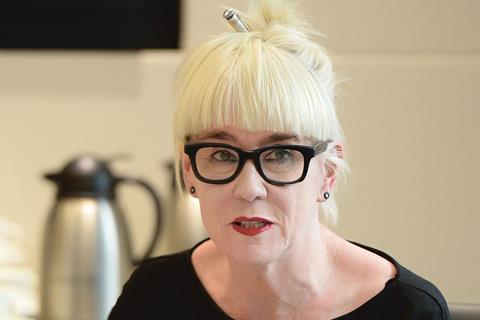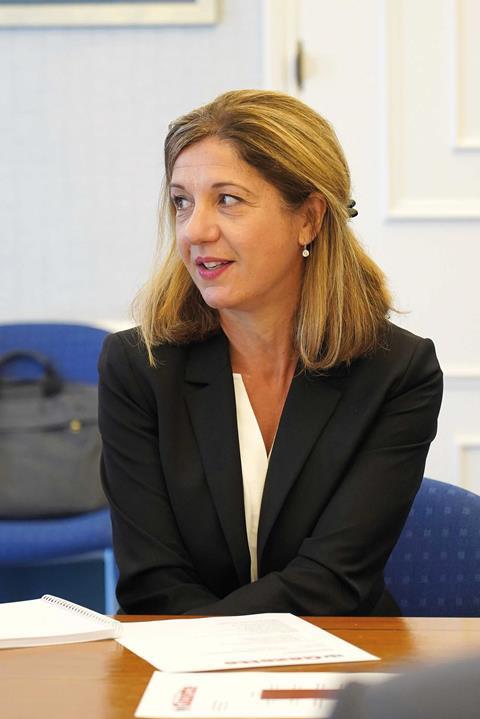Dedicated solicitors remain as client-focused as ever, but the life changes wrought by the pandemic have altered the face of client service for good. Eduardo Reyes reports from the latest Gazette roundtable discussion, sponsored by ActionStep
At the table
Melinda Giles, Giles Wilson
Simeon Spencer, Spencer West
Oliver Tromp, Actionstep
Chris Maulkin, Family Law Partners
Laura Devine, Laura Devine Immigration
Sue Murphy, Paris Smith
Paul Linsell, Boyes Turner
Jonathan Lea, Jonathan Lea Network
Richard Forrest, Hayes Connor Solicitors
Eduardo Reyes, Law Society Gazette
Traversing city centres during our Covid-19 lockdowns, it could feel as if everyday life had stopped. Not so for solicitors. It is now evident that, apart from a temporary freeze on the property market, demand for legal advice from clients continued and even intensified. There was an overnight change to remote working, outdoor will-signing and online meetings, and the fairly rapid adoption of electronic signatures. That was an emergency response, and lawyers and firms did what they could – often improvising new arrangements. Sometimes they had to rely on professional trust when managing risk.
But in this new world, what does client service mean? How have firms adapted to manage and regulate client care? The discussion starts with attendees relating their view of ‘excellence’ in client service.
Laura Devine, managing partner of Laura Devine Immigration, begins: ‘I say to all the team that each touchpoint in the firm should be a “wow factor”. You know yourself when you get good client service, even if you’re just buying a cup of coffee.’

Good service, she says, also comes in the way the client is kept informed – and in her field, where her lawyers rely on immigration agencies completing tasks and making good decisions, that extends to relaying bad news and news about delays.
Directness is important, stresses Jonathan Lea, who runs his own firm working for corporate and commercial clients. ‘Always try and get to the nub of the issue as quickly as possible and make sure you show that you understand both their business and what their actual concerns are, and always display a good tone as well – positive, upbeat, that you can resolve their issues,’ he advises.
He and colleagues build trust through the initial conversation: ‘We always offer a 20-minute no-cost, no-obligation call with anyone who’d like to instruct us, and that helps us to demonstrate that we can help, and have a decent discussion, and build rapport with them. That’s been a lot easier now that we can use things like Zoom and video conference facilities. Then we follow that up with a detailed quote email.’
His other advice is that clients should never be ‘surprised’ over fees.
Simeon Spencer, senior partner of Spencer West, says embedding that approach starts with guidance to his trainees: ‘I say to them, “Look, no matter the client, there are two things that have a reciprocal relationship. One is trust, to be instilled in one’s client all the time, and the other is integrity, to be maintained by the lawyer at all times.”’

‘I think technology is clearly the biggest shift since the pandemic; and how people are using it,’ notes Paul Linsell, head of Boyes Turner’s family team. ‘The clients now expect a greater variety of communication methods. So I think they now have different ways of communicating that are open to them, whether it’s instant messaging services, whether it’s video conferencing, and so on. I think they now expect that the solicitor will adopt their chosen method rather than perhaps the other way around.’
Sue Murphy, head of business development and digital marketing at Hampshire firm Paris Smith, notes that the shift to a more fully digital client experience has also affected client expectations. ‘Amazon did us no favours whatsoever,’ she observes. ‘You know yourselves – you order something from Amazon, you blink, it’s appeared. I think there was an expectation among clients that digital didn’t necessarily mean ease of getting in touch, it meant speed. So, instantly, everything was supposedly going to happen so much faster, because it was all being done digitally now.’
The firm responded with a live-chat function on its website. A nine-to-five pattern for working ‘went out of the window’ as lawyers and staff organised work around other life commitments.
Supervising junior members
A particular impetus for doing more than just respond with emergency measures, Murphy relates, was the need to supervise junior team members. ‘Supervision, I think, came into a whole new world through the pandemic,’ she says. ‘So, we were having to actually think about supervising our juniors, to ensure that they were providing the service that we wanted them to provide, and training, and staying in touch with people.’
From his perspective as a provider of services to the law firms, Actionstep’s Oliver Tromp recognises Murphy’s points. ‘We’ve seen that is a priority among clients, and therefore it’s a priority among firms, that they need technology that allows them to be quick and that allows them to respond quickly to enquiries; that allows them to send documents quickly, get documents signed quickly,’ he says. ‘Automation obviously can help with that. [But] how do you maintain consistency among the entire firm? When people are working remotely, how do you make sure that junior associates are providing that same quality service? How do you ensure that the entire team is happy and then are able to provide good service?’

Technology, Tromp argues, needs to support personal interactions between client and lawyer, rather than replace it. ‘I kept hearing that there is still this human element,’ he says. ‘That even when people are working remotely, and we’re all so used to these video calls now, the human element is still so important. So, I think that’s something that you can never lose sight of. Hopefully, with a really good software setup, you spend less time on administrative tasks and more time on that human element, and then actually interacting with people, reaching out to them, building that relationship.’
Team players
A common gripe from business development professionals and managing partners, in firms of all sizes, is that individual partners are overly possessive of ‘their’ clients, preventing colleagues and peers in the firm from having contact that may result in instructions to meet their other legal needs. Some term this cross-selling, though not all like the term. Spencer dubs it ‘empire-building’.
What have pandemic working conditions done, for example, to the sense of who ‘owns’ a client relationship? Chris Maulkin, from Sussex- and London-based Family Law Partners, says: ‘Quite a lot of the ownership of a client experience actually comes down to the culture in the organisation. I suppose what I mean by that is a shift away from lawyers who typically act in silos, and view themselves as working in a vacuum, to actually viewing yourself as being a member of a team.

‘So if you see one of your colleagues struggling – helping them. If you’ve got a skill, rather than keeping it to yourself, sharing it and allowing that skill to be passed and trained on to other members of the team.’
He adds: ‘It lends itself toward creating a culture of trust, where you’re much more willing to listen to the feedback you receive from clients, and to share it, both positive and negative, as a learning experience, without the concern that you’re going to be unfairly vilified. Ultimately there are always areas we can all learn and develop from.’
This matches Devine’s experience of practising in the pandemic. ‘One of the things that my support staff, my secretaries, have said, is that they’ve really enjoyed having more client contact, because at the beginning, they are actually meeting the client online, opening files, doing anti-money laundering checks,’ she says.
‘They would never have done that in the office. I also think junior lawyers have much more client contact, they’re much more likely to have a meeting with the client on Zoom. With their corporate clients, some of our lawyers have said they felt much more part of the HR teams, and they’re much more likely to be invited to join meetings.’
Future perfect?
Roundtable attendees were asked to make a prediction about client service in the future.
‘We’re certainly looking at ways we can just digitise more of our services… the people who want that personal “face-to-face”, that is never going to go away, it’s always going to be there for them, but I think digital is key.’
Sue Murphy, Paris Smith
‘I think the digital way of doing things is here to stay, it’s only going to advance. [But] it comes down to knowing your client well, how they would prefer to do things, in person, remotely. Some might even want to still do it on the telephone, the old-fashioned way.’
Richard Forrest, Hayes Connor Solicitors
‘I’m always at pains to make sure people in my firm understand that technology is a tool and it always will be a tool. It doesn’t replace our professionalism. There’s a symbiotic relationship between technology and professionalism.’
Simeon Spencer, Spencer West
‘The key change in client service from technology is perhaps that we [take a more] holistic approach. We do more collaboration [with] other professionals, whether it’s financial services or experts in other fields. It’s far easier to have a meeting, you can just bring someone into the meeting.’
Paul Linsell, Boyes Turner
‘Our net can go wider in terms of the clients that we can serve – because of technology.’
Melinda Giles, Giles Wilson
‘We started a digital “shop” in lockdown; not providing legal advice, but legal products. People pay some money to download them. It’s been good at what I might call passively building relationships with people… we find people getting in touch with us out the blue who have used one of these products for some specific purpose and it’s worked for them.’
Jonathan Lea, Jonathan Lea Network
‘Clients are going to expect more value to be added by their lawyers, and there’s going to be an expectation among some clients that technology’s going to be used to help with that.’
Chris Maulkin, Family Law Partners
‘Clients are expecting a quicker response during the working day, because they expect you to be at your desk. But I think they’re a little bit more respectful of lawyers’ weekend hours. I think in the past, a client would have expected you to reply on a Saturday. Maybe less so now.’
Laura Devine, Laura Devine Immigration
Collective responsibility
Richard Forrest, legal director at north-west firm Hayes Connor Solicitors, observes: ‘There is a collective responsibility throughout the firm to ensure that there’s ownership of that client experience, from start to finish. It’s important that there’s a shared belief and principle collective among the firm, to ensure that that experience is uniform throughout, and everyone’s singing from the same hymn sheet. I think it is important as a collective, as a firm, to ensure that that experience starts at the very outset and continues throughout.’
‘Collaboration is the absolute lifeblood of a modern law firm,’ Spencer adds. ‘It is partly about the culture, and it’s about people acting in such a way as to be supportive, to look at their fellow person, their colleague, and think, “How can I give to the collective, and not just take from it?”.’
Has the march of technology helped or hindered that quest? Spencer’s conclusion is clear: ‘Collaboration is helped by technology… there’s an underlying irony to it all that our humanity as lawyers has been exposed and promoted through technology. Isn’t it supposed to be the opposite?’
The visible cats, toddlers and interiors of people’s homes, he says, have been a positive. ‘Being able to show one’s humanity, both internally to colleagues as well as externally, does promote a collaborative spirit, because actually people want to collaborate with people who they like and who they connect with on a human level.’
Mystery shopping
With so much happening remotely, Murphy says, ‘mystery shopping’ is important, to gain an insight into clients’ experience of the firm. She adds: ‘You cannot do better than have a really good client relationship management system, where all those touchpoints are recorded, so if the client is on the phone to you, you can very easily see who saw them last.’

The office itself, as Devine has said, was always the key ‘touchpoint’ with clients for a law firm. Giles Wilson partner Melinda Giles says the keenness of younger staff to return to the office, through a desire to learn in the workspace and less suitable workspaces at home than partners have, has increased their client contact experience.
She relates ‘a really interesting thing, in that they all grew in the role hugely in terms of their responsibility, their peer group. But also, all of us who were supervising and training them had to be much more mindful that we were in fact supervising and training them, and make far greater efforts in that respect to share our screens, to invite them to meetings’.
As a result, she adds: ‘In terms of the outcome of sharing clients, it’s definitely happened almost by accident even more than it already was happening.’ The ‘digitalisation’ of legal work has also, Giles notes, increased the willingness of clients to provide valuable feedback through online reviews and forms.
Lea notes that his firm’s website has increasingly become the route through which clients find and instruct the firm. This means junior staff are more often the first contact point with clients. As a result, they get to ‘build a relationship and be the interface with the client, albeit it’s made clear to the client and everyone that there are others in the background within the office environment, as well as virtually, who are working with the junior fee-earners’.
The term ‘robot law’ has entered the legal sector’s vocabulary in recent years. Perhaps the surprise of the technology shift the legal sector has seen since March 2020 is that, at a certain level, clients and lawyers have seen more of each other. Experiences have become more, not less, personal.
Perhaps, as Tromp concludes, that is because the adroit use of technology frees us all up to do that: ‘Technology shouldn’t make your life more complicated, it should make your life more streamlined, or more simple, and that’s what we’ve seen among a lot of our clients. They’ve been able to leverage their practice management system by building in some workflows, or some automation, or some kind of intuitive elements. They’ve been able to speed things up, they’ve been able to keep people happy, because they’re spending less time on administrative tasks. And then they’ve been able to maintain that consistency firm-wide.’
- This roundtable was kindly sponsored by Actionstep.





































No comments yet